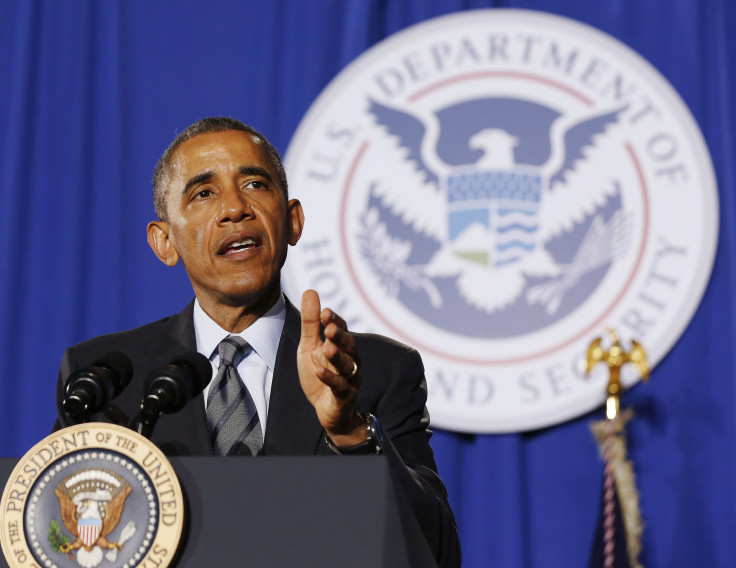Obama Budget 2015: President Warns Of Consequences For Not Adopting Spending Proposal

President Barack Obama had some dire warnings for Congress when he proposed his $4 trillion budget Monday: Cut it, and the military and the economy will suffer. But budget experts said Obama's statement doesn’t reflect reality and is just the president defending his spending plan.
“What we can’t do is play politics with our folks’ economic security or our national security,” Obama said at the Department of Homeland Security Monday, shortly after his budget proposal was sent to Congress. Obama also said he won’t accept a spending plan from the Republican-controlled Congress that locks in so-called sequestration, or automatic budget cuts.
Obama is asking for a $25 billion increase in the defense budget, which would balloon to $585 billion if his recommendation is passed by Congress. With a Republican-controlled Congress looking to reduce spending, that’s unlikely to happen. But it’s still possible to fund defense at a lower level than Obama’s request and still have military readiness, said Matthew Leatherman, adviser for foreign affairs and defense budgeting for the Stimson Center, a Washington nonpartisan global security think tank.
“There’s plenty of ways that the Pentagon budget can be trimmed that don’t hurt preparedness,” Leatherman said. For instance, the Pentagon could be more efficient in how it acquires military equipment or could propose ideas to save money on soldiers’ healthcare and retirement, although this may be a politically difficult proposition. “You can save money by being more disciplined in the priorities that you set.”
Going back at least 35 years, every president has given warnings of the alleged consequences of Congress not adopting the administration's budget, said David Rehr, director of the Advocacy in Global Environment program of the Graduate School of Political Management at George Washington University in Washington. “They always say, ‘If you don’t accept my budget, bad things will happen,'” he said. “It basically sends the signal about his priorities.”
While Obama has the threat of a veto at his disposal, the GOP’s control of Congress means the final budget will most likely resemble its plan. This takes the bite out of the president’s threat. “Essentially, presidential budgets are DOA [dead on arrival] 15 minutes before they go to Capitol Hill,” Rehr said, because all sides understand the proposal is just a starting point in negotiations. “People need to think of the budget as kind of a political [public relations] tool. It’s not like your own budget in your house. It’s more about the direction of your policies, what you want to prioritize and what your hopes and aspirations are, for the president, for the last two years.”
© Copyright IBTimes 2024. All rights reserved.






















